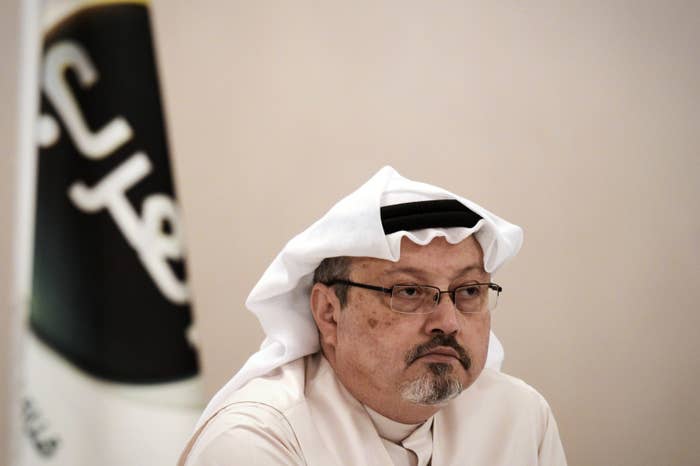
Just before his disappearance at the Saudi consulate in Instanbul two weeks ago, Saudi columnist Jamal Khashoggi wrote what appears to be his final column decrying the lack of a free press in the Arab world, and the silencing of dissent by government forces.
Khashoggi, who wrote for the Washington Post Global Opinions section, was last seen entering the consulate on Oct. 2. Turkish officials have claimed that he was dismembered and killed by a team of Saudi agents inside.
The column, published Wednesday night, was filed by Khashoggi's translator and assistant the day after the journalist's disappearance, the Post's global opinions editor Karen Attiah said in an editor's note.
"The Post held off publishing it because we hoped Jamal would come back to us so that he and I could edit it together," Attiah wrote. "Now I have to accept: That is not going to happen. This is the last piece of his I will edit for The Post."
One of the most well-known media figures in Saudi Arabia, Khashoggi had become a vocal critic of the Saudi government, including Crown Prince Mohammad bin Salman, and is believed to have been targeted for his dissent. The 59-year-old journalist had been living in the United States for the past year in what he described as a self-imposed exile.
In his last column, Khashoggi railed against the lack of independent voices — and the absence of a free press — in the Middle East. Instead, he wrote, governments in the region have worked to silence dissent and block the internet to ensure that official narratives are the only ones available.
"As a result, Arab governments have been given free rein to continue silencing the media at an increasing rate," he wrote.
"A state-run narrative dominates the public psyche, and while many do not believe it, a large majority of the population falls victim to this false narrative," he continued. "The Arab world is facing its own version of an Iron Curtain, imposed not by external actors but through domestic forces vying for power."
Khashoggi's disappearance, and his assumed death, has sparked an international outcry, and put the US relationship with Saudi Arabia in a precarious position. US allies and lawmakers from both parties have demanded Saudi leaders provide a full accounting for what happened to Khashoggi, and called for harsh retaliation if it is confirmed that the Saudi government was involved.
President Donald Trump, however, has given Saudi Arabia the benefit of the doubt, saying Monday that "rogue killers" may have been responsible for the journalist's death. In comments to reporters this week, he has repeatedly cited Saudi leaders' denials that they had any involvement in Khashoggi's disappearance, and suggested that the kingdom had been victim of an international rush to judgement.
In his final column, Khashoggi mourned the lack of international outcry against crackdowns on independent journalists and media in the Middle East, pointing to the jailing of Saudi writer Saleh al-Shehi and the seizure of the Egyptian paper al-Masry al-Youm.
"These actions no longer carry the consequence of a backlash from the international community," he wrote. "Instead, these actions may trigger condemnation quickly followed by silence."
"The Arab world needs a modern version of the old transnational media so citizens can be informed about global events," he concluded. "More important, we need to provide a platform for Arab voices."
